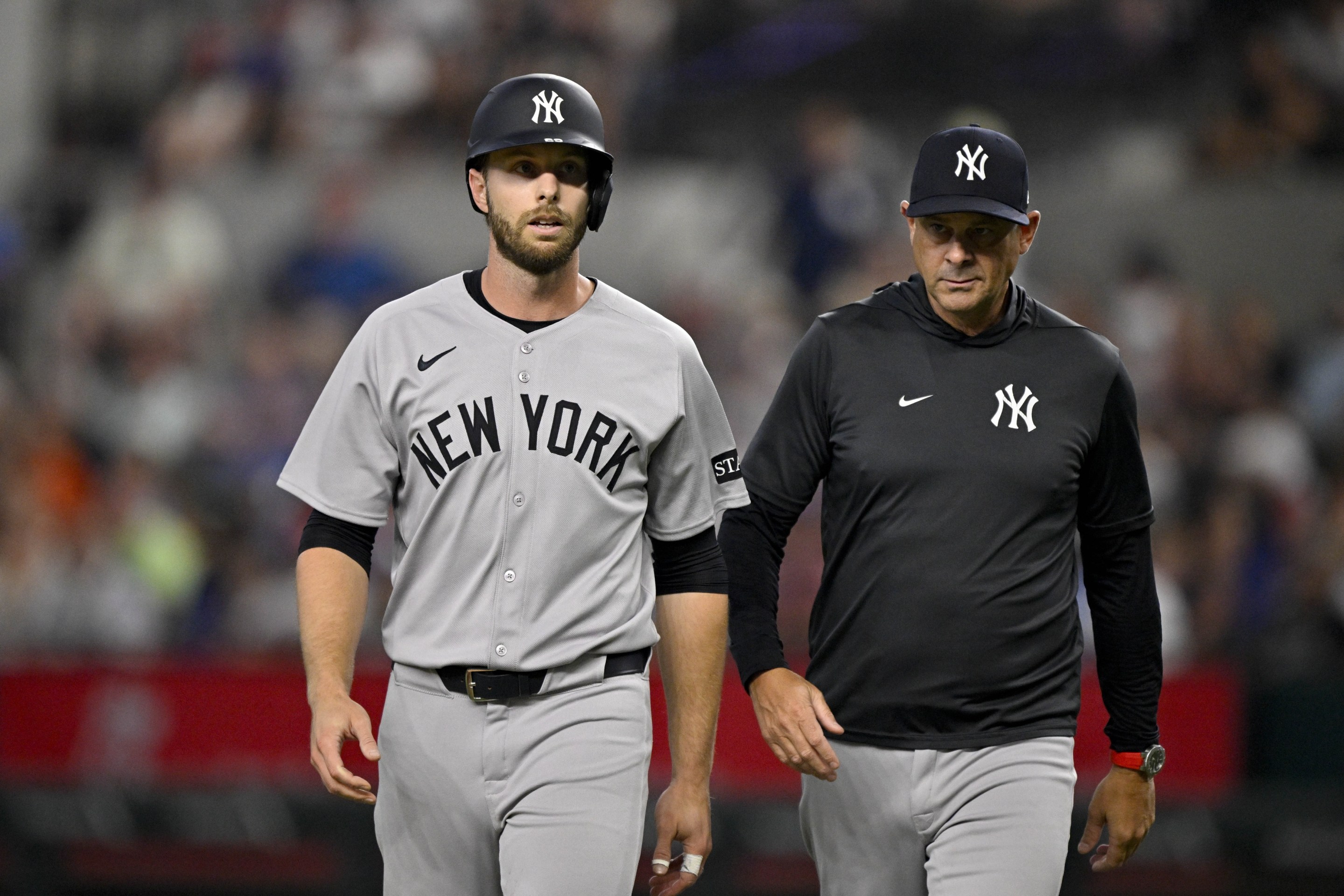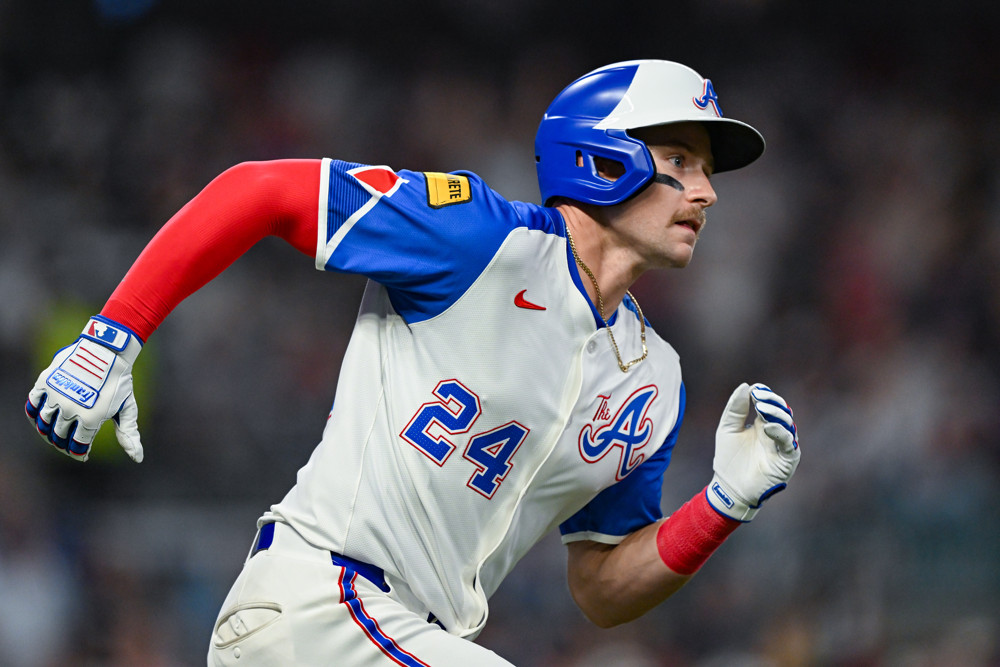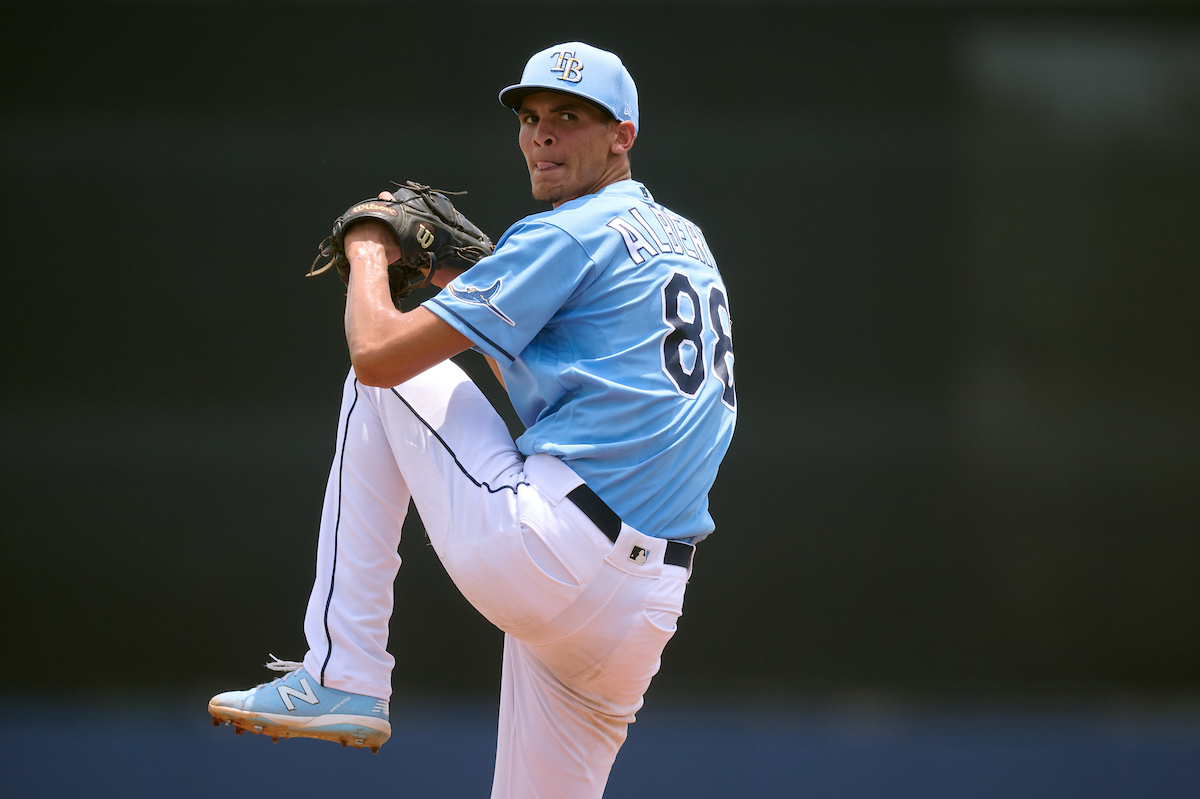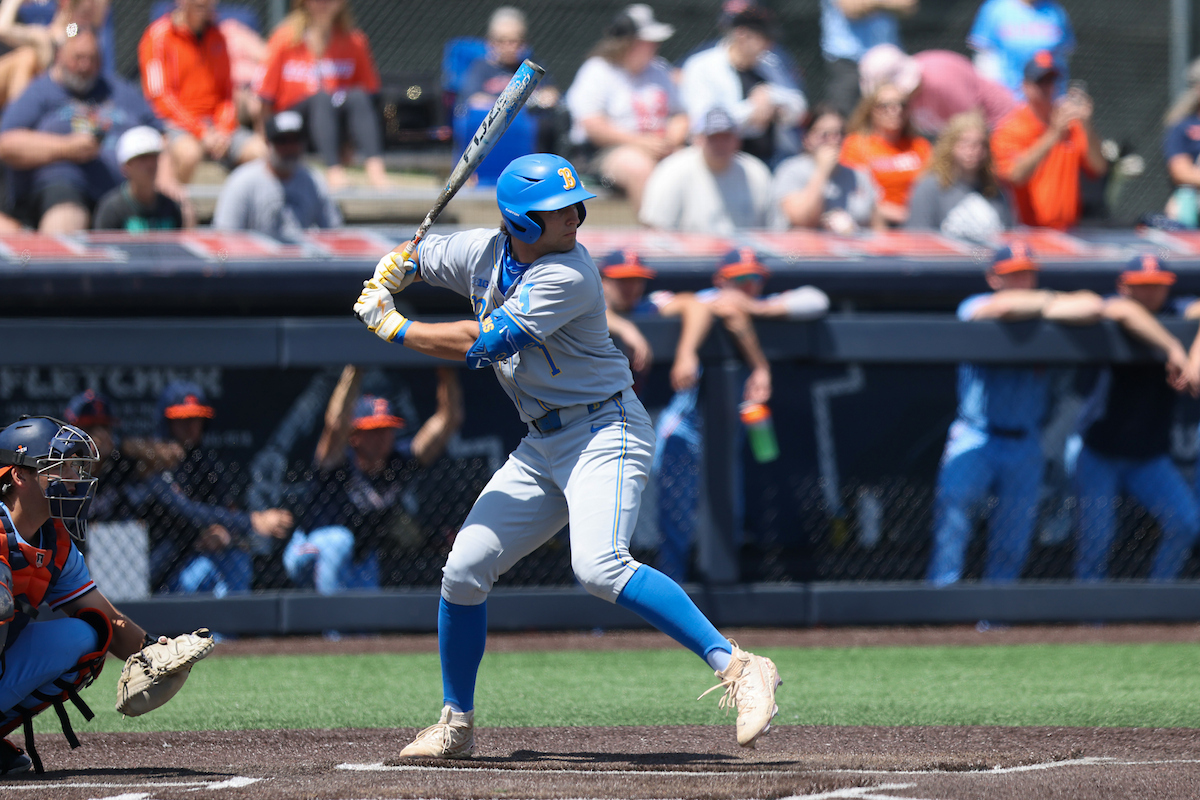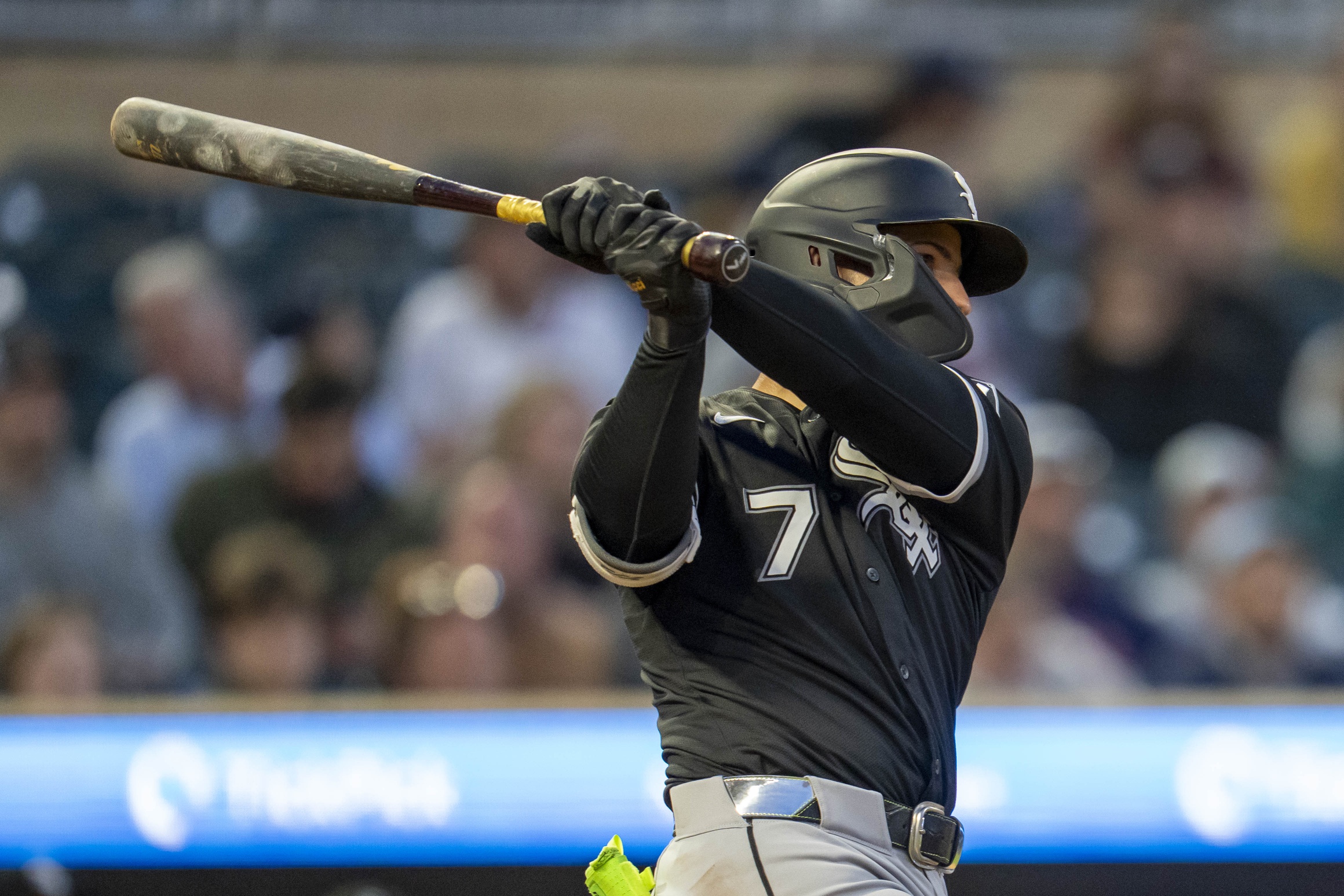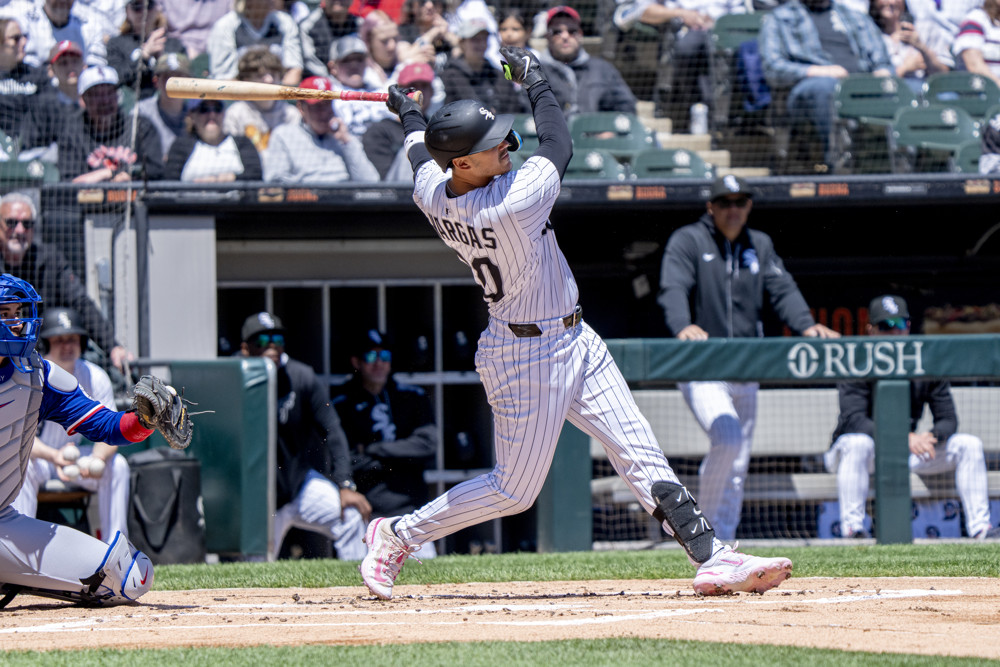Gage Ziehl's White Sox organizational debut was unremarkable in one direction or the other. He allowed three runs (two earned) over 4⅓ innings for Winston-Salem in a loss to Greenville on Saturday, but two of those runs scored in his final inning of work, and not on his watch. There aren't any sweeping judgments to draw, and given that he's in the back half of his first full professional season, there's no pressure to draw any conclusions yet.
The same can't be said for the Yankees, who traded Ziehl to the White Sox for Austin Slater specifically to acquire help hitting left-handed pitching over the final two months of the season before he becomes a free agent again. Slater pulled his left hamstring attempting to beat out a double play ball on Monday, in just his third game with New York. He'll head to the injured list for the second time this year, although this injury is unrelated to the right meniscus tear he suffered in April.
Slater is 0-for-7 with four strikeouts since the trade, so his first significant New York minute has yet to happen, and it won't for a while. The only good news is that Slater's roster spot will be occupied by some guy named Aaron Judge.
⚙️⚙️⚙️
Adrian Houser made sense for the the Cubs at the trade deadline, given their need for respectable starting pitching depth, and Chris Getz said he and Jed Hoyer talked about a trade up until 30 minutes before the deadline, after which Getz pivoted and struck a deal with Tampa Bay instead.
Hoyer had already acquired one back-end type by trading for Michael Soroka the day before, so perhaps Hoyer didn't feel a need to meet the asking price in an environment that made him uncomfortable:
“It was a really tight market,” Hoyer said, noting a small number of rental starters who were available. “Of the marquee controllable starters, none of those guys changed hands. We didn’t acquire them, and no one else did, either. Obviously, we felt like the asking price was something that we couldn’t do to the future.”
But it didn't take long for the second-guessing to start, because Soroka departed his Cubs debut on Monday after two innings and 31 pitches with a shoulder injury.
It didn't exactly come out of nowhere, either. His velocity had dipped from 94 mph before the All-Star break to 91 mph in his three starts for the Nationals before the trade, and he had an MRI for "peace of mind" before his final start with Washington.
It also brought to mind Soroka's time with the White Sox, in which his velocity spiked upon a move to the bullpen. He told James in early July that he could carry the uptick in stuff back to the rotation, only to hurt his shoulder three outings later, leading to a two-month absence that removed him from any trade deadline talks. The idea of adding Soroka made some sense, but more as a small wager on somebody underperforming his peripherals. He's not the prototypical veteran starter who could be expected to bolster anything, which made him a curious choice for being the only addition.
⚙️⚙️⚙️
As the smoke clears from the controlled implosion of Minnesota's 26-man roster, the trading of 10 players left Dan Hayes with a lot of threads to pull, and he's assembled a couple of notebooks of what's he's learned.
He doesn't offer a uniting theme himself, but to me, there's the same sense of absentee landlordism that was pervasive during the last years of the Kenny Williams-Rick Hahn era, except in this case, the Pohlads are actually looking to sell, whereas with the White Sox, Jerry Reinsdorf just wanted to play a real life version of Baseball Mogul with his friends. Derek Falvey is talking up all the great work he and his staff did to be able to make such a staggering quantity of moves with confidence, but this will be his third attempt at fashioning a team that can sustain success, and it mostly seems like he and Rocco Baldelli are allowed to be there because the Pohlads don't see a point in onboarding anybody new.
There's a lot of talk about Byron Buxton being a leader -- and the same for Carlos Correa before he was traded -- and it does seem like Buxton is trying to put him stamp on the clubhouse, what with his declarations of love to Minnesota and unwillingness to consider exercising his no-trade clause. That's great and admirable, but it also invites the question of what exactly he is leading, or what anybody with decision-making power is giving him to lead.
